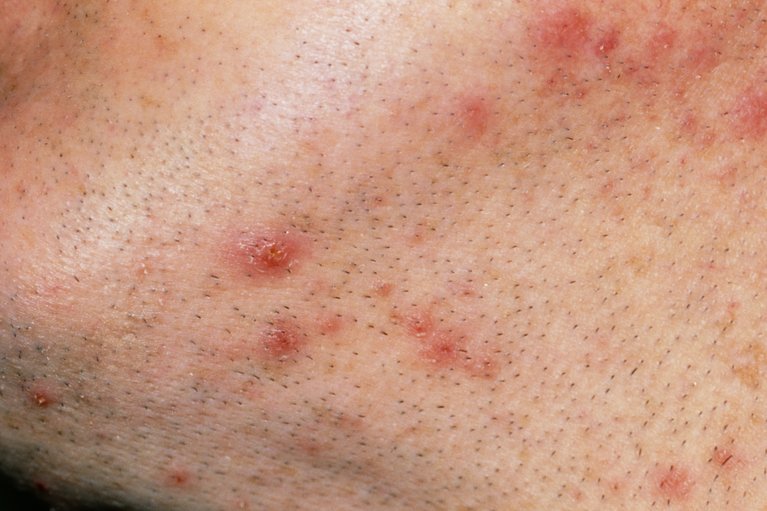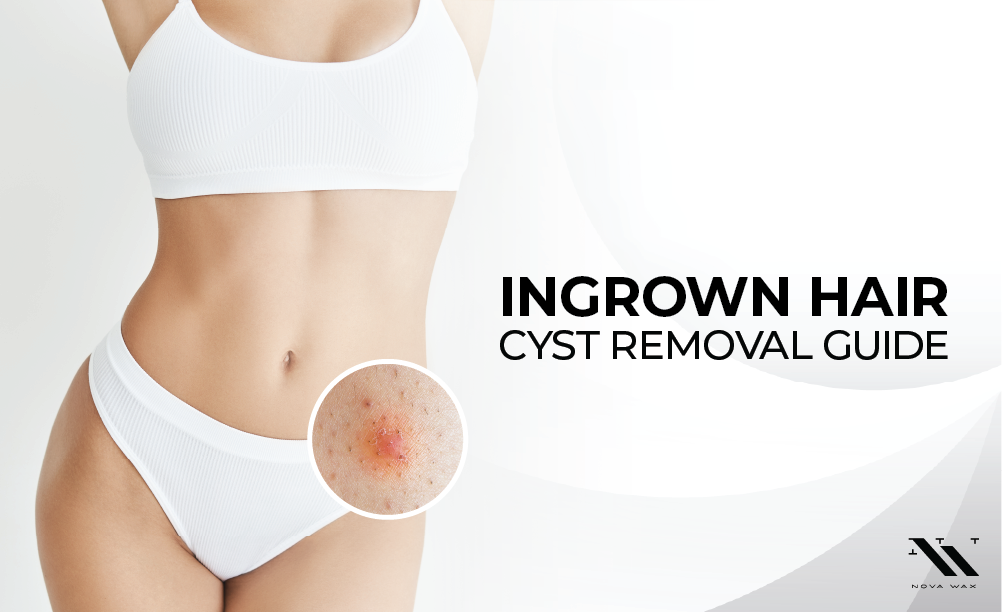Ingrown hair Diagnosis and treatment
Table Of Content

If it doesn't clear up in a few days or gets worse, see your doctor, who might prescribe stronger creams or an oral antibiotic or both. In most instances, ingrown pubic hair resolves on its own. However, if the ingrown hair becomes infected, you may have to see a health care provider. If the ingrown pubic hair is causing a lot of redness and inflammation, a doctor may prescribe a steroid cream. This topical treatment can reduce swelling and irritation around the hair. A blocked hair follicle may develop into an infection.
Ingrown Hairs Treatment And Prevention
None of our tests are intended to be a substitute for seeking professional medical advice, help, diagnosis, or treatment. For regulatory reasons, our tests are not available in NY with the exception of COVID-19. They happen when the skin blocks the emergence of a hair from the follicle, or when a hair grows back into the skin.

How we vet brands and products
Keep that in mind if you're prone to getting those angry red bumps. If you go to a professional that uses sugaring paste, you'll have the best chance of avoiding hair growing back into the skin. Hair structure and the direction of growth are factors in developing ingrown hair bumps. Although anyone can develop ingrown hairs, they are more common in people with curly hair. This is because curly hair is more likely to curl around and grow back into your skin. The best way to prevent ingrown pubic hairs is not to shave or wax the area.
Ingrown Pubic Hair: Causes, Treatment, and Prevention
An ingrown hair looks like a raised, discolored spot on your skin. It’s a strand of hair that grows back into your skin after shaving, tweezing or waxing. Ingrown hairs can affect anyone, but they’re easy to treat and prevent with the right hair removal practices. Treatment for ingrown hair cysts varies depending on the type of cyst involved. Some cysts may need to be treated with antibiotic ointment or surgery, while others may not need any treatment at all.
Non-razor hair removal options
Your health care provider will be able to help treat the infection and provide advice about preventing future ones. You can try to pull out the ingrown hair using a sterile needle and tweezers. Use the needle to expose the tip of the hair and the tweezers to pull the end of the hair out of the skin.
If these results come back negative, your doctor may look for other possible explanations. These include an ingrown hair, blocked oil glands, and cysts. Common sexually transmitted infections (STIs), including HSV-2, can be shared through sexual contact, including vaginal, anal, or oral sex. When new hair forms, if the hair follicle is closed up, hair can't grow out of the follicle and through the skin. It’s also important to keep the area clean and moisturized.
How to Prevent Ingrown Hairs Near the Vagina, According to Ob-Gyns - POPSUGAR United Kingdom
How to Prevent Ingrown Hairs Near the Vagina, According to Ob-Gyns.
Posted: Tue, 04 Jan 2022 08:00:00 GMT [source]
What is an ingrown pubic hair?
If you’re worried about the pain, it’s OK to take an over-the-counter pain reliever before you go. But don’t apply numbing cream to your skin beforehand—if you get burned, you want to be able to feel it. If you have diabetes or a weakened immune system for any reason and develop a boil, contact your healthcare provider. Bacteria from the boil can spread to other parts of your body or enter your bloodstream. If this occurs, your heart, bones, brain or other organs could be at risk for infection.
How to remove an ingrown pubic hair
If you choose to shave, use a sharp, clean razor and change it frequently, or switch to an electric razor. Shave in the direction of the follicle, not against it. Hot tub folliculitis is caused by pseudomonas bacteria, which can be found in hot tubs and heated pools where the chlorine and pH levels are out of balance.
This means using latex or polyurethane condoms consistently and correctly during sexual intercourse. It’s essential for individuals with herpes to communicate with their partners about their condition to ensure safe sexual practices [11]. Consulting a healthcare professional ensures that the correct diagnosis is made, leading to the accurate treatment.
However, only a healthcare professional can provide an accurate diagnosis through tests and examinations. Herpes testing involves swabs, blood tests, and physical examinations to determine the presence of the virus and the appropriate course of action. Some people believe that removing their pubic hair increases genital sensation during sex. Indeed, studies suggest that there’s a link between pubic hair removal and self-reported sexual functioning. In the days before your medical appointment, if possible, stop shaving or using any form of hair removal.
Squeezing an ingrown hair will increase the risk of infection. If an infection is present, squeezing the bump may worsen it. Preventing ingrown hairs can decrease your risk of related infections. Not all ingrown hairs become infected, and they usually resolve on their own in a few days. A doctor will usually assess an ingrown hair infection by looking at the symptoms and asking about your medical history. Keep reading to learn how to recognize an infected ingrown hair, as well as tips for treating and preventing them.
You can try one of these special razors, or just buy a single-bladed razor. Treating the pubic region before shaving may reduce your risk of ingrown hair when the hair starts to grow back. Waxing, shaving, or plucking hair can increase your risk for developing ingrown hairs in your genital area, but some hairs just grow in unusual ways.
If you stop removing your pubic hair, you’ll also lower your chances of developing a skin infection. Knowing when to seek medical advice is crucial when dealing with symptoms that could be related to ingrown hairs or genital herpes. Healthcare providers have the knowledge and expertise to accurately diagnose and differentiate between these conditions. Boils near the vagina are caused by bacteria that enter through the skin and infect a hair follicle. Keeping your genital area clean and practicing good hygiene is the best way to prevent recurring boils. If you shave your pubic area with a razor, change your razor often.
Ingrown hair cysts may go away on their own or with simple treatment. However, you may need to see a healthcare provider to treat an ingrown hair cyst that's hard to get rid of. Redness, chafed skin, and itchiness is commonly referred to as “razor burn” and occurs within 36 hours of shaving. The injured follicles are highly susceptible to becoming infected.
Comments
Post a Comment